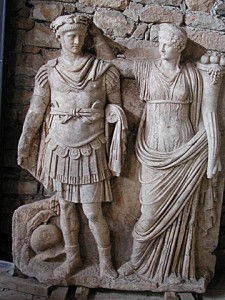Blogging about new research just published in the journal Media, Culture & Society, Dr Tim Markham asks whether, when it comes to social media and political uprisings, we’re just seeing what we want to see.
 When I travelled to Cairo last April, one of the first things I did was to visit Tahrir Square, scene of some of the most evocative and stirring events of what came to be known as the Arab spring of 2011. Not much was happening, and the banners and flags I spied at the opposite corner turned out to be knock-off Manchester United merchandise. It’s not uncommon for visitors to be met with encounters of extraordinary serendipity (“You’re from Nottingham? My cousin is a student there!”) as an opening gambit in the tourist trade, and I was quickly identified as yet another politics junkie and deftly plied with implausible yet seductive tales of intrigue and pending drama to soften me up for the inevitable invitation to buy something or other. Much has happened in Egypt since, but it was a useful reminder that revolutions are rarely a matter of unstoppable momentum or constant mayhem, and that the politics we identify in them isn’t lofty and abstract but the stuff of everyday life and work. I was in town to interview journalists at the newspaper Al-Ahram, who displayed all the bravery, cynicism, determination and frustration you’d expect. For them too political principles were heartfelt but rooted in routine, and when I asked one reporter how much things had changed for her over the previous two years, she captured this nicely by responding “Oh, I’m still optimistic but mostly I’m just busier”.
When I travelled to Cairo last April, one of the first things I did was to visit Tahrir Square, scene of some of the most evocative and stirring events of what came to be known as the Arab spring of 2011. Not much was happening, and the banners and flags I spied at the opposite corner turned out to be knock-off Manchester United merchandise. It’s not uncommon for visitors to be met with encounters of extraordinary serendipity (“You’re from Nottingham? My cousin is a student there!”) as an opening gambit in the tourist trade, and I was quickly identified as yet another politics junkie and deftly plied with implausible yet seductive tales of intrigue and pending drama to soften me up for the inevitable invitation to buy something or other. Much has happened in Egypt since, but it was a useful reminder that revolutions are rarely a matter of unstoppable momentum or constant mayhem, and that the politics we identify in them isn’t lofty and abstract but the stuff of everyday life and work. I was in town to interview journalists at the newspaper Al-Ahram, who displayed all the bravery, cynicism, determination and frustration you’d expect. For them too political principles were heartfelt but rooted in routine, and when I asked one reporter how much things had changed for her over the previous two years, she captured this nicely by responding “Oh, I’m still optimistic but mostly I’m just busier”.
An awful lot has been written about the Arab spring (it’s okay to use this phrase in Cairo – everyone does, though it’s lathered in irony) by journalists, activists and academics, and much of it has been freighted with a combination of ideology and wishful thinking. Yet my trip wasn’t an attempt to scythe through the fictions swirling through academia and the twittersphere to get at the real truth of the Arab spring. Not really. It was part of a broader project aiming to better understand how we think about protest, political change and the role that different kinds of media play. Most commentators, whether western or Arab, seemed to agree that something unique was building in the Middle East a few years ago, but the way we talked about it reveals as much about us as it does about events on the ground. Specifically, the problematic picture that emerges from my research is one of fragile political shoots that need to be protected – not only from new forms of political authoritarianism or extremism, but also from mainstream media in the form of western corporate behemoths and regional broadcasters such as Al Jazeera, collectively characterised as clumsy or conspiratorial depending on personal preference. And not only from media but from ivory tower political analysts – Arab and western alike – deemed naïve, patronising or arrogant. For me, this is where it really gets interesting.
As for the media, as hard as it is to credit these days most journalists are well-meaning, and few wake up with a burning desire to delegitimise political dissent or to portray citizens of distant nations as backward, uncivilised or simply ‘other’. But there’s a prominent and longstanding argument in academia that individual intentions count for little when the whole media industry is programmed to churn out certain truths. That’s without reckoning, however, with what quickly became the only game in town for pundits and profs alike: the irresistible rise of social media. Now, we know of course that Facebook, Twitter and YouTube have all played a part, and there’s certainly a great deal of interest in the possibilities that these platforms open up, going on the number of articles winging about on academia.edu and many of the PhD proposals we receive (not that I’m complaining – keep them coming!). But too often it’s assumed that there’s something about social media – their perceived structurelessness, their apparent lack of hierarchy – that is naturally geared towards generating a new, dynamic, weightless form of politics, one that is preferable to the familiar sclerotic, decadent kind we increasingly look on with contempt.
There is a danger here of seeing what we want to see, not helped by the tendency to use biological and ecological metaphors to encapsulate the essence of social media, and then to let these metaphors (waves, viruses, organisms, ecosystems) act as a substitute for methodical, dare I say dry, analysis. Likewise there’s a predilection in the academic literature for creative, imaginative acts of dissent, and for reading something radical into seemingly apolitical things like, in one instance, dressing scruffily. Here, there’s talk of protest cultures emerging like fragile life forms that need to be nurtured, and not smothered by the strictures of conventional politics.
As much as I like the idea of living in a world where these ways of thinking about social media and protest ring true, it’s a world based on a fantasy of structurelessness – the idea that a more progressive, more authentic politics will emerge organically and spontaneously once we’ve stripped away the tired institutions and paradigms of politics, media and academia. But that’s not how it seems to the journalists at Al-Ahram, nor to the unfashionable band of activists and academics, myself included, who maintain that politics is a slog, and it often lacks the poetry we’d like to find in it.
The original article was published in Media, Culture and Society vol. 36, no. 1, pp. 89-104. You can also read it on academia.edu. Dr Tim Markham is Reader in Journalism and Media in the department of Film, Media and Cultural Studies. You can follow him on Twitter at @TimMarkham.





